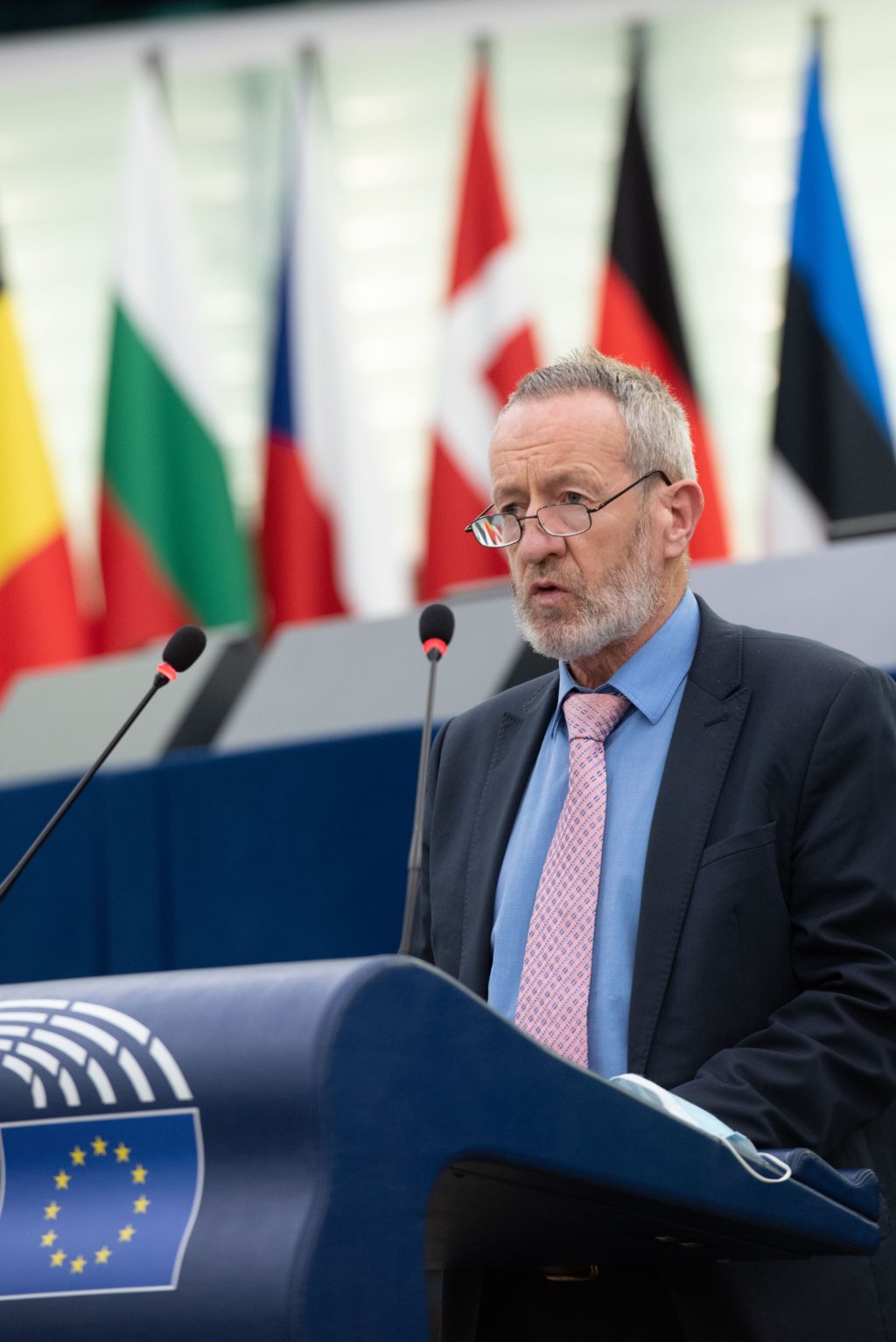Published: Tue, 15 March 2022
Share this

The Russian Federation’s denials of their heinous bombing of a maternity hospital in Mariupol last week, which killed and wounded women and children at their most vulnerable, is a shocking reminder of just how sinister disinformation can be.
The horrifying death and destruction being inflicted on Ukraine is being carried out with evil intent by the Russian President Vladimir Putin and his supporters. There is no justification for Putin’s unprovoked attack on innocent civilians and a sovereign country. Yet the Russian Federation’s ongoing disinformation campaign informs ordinary Russians that Ukraine is being “liberated” on national TV and radio. Thankfully, the EU has now banned Russian state-sponsored media outlets RT and Sputnik from broadcasting their vile propaganda here.
The use of disinformation and foreign interference as modern day warfare is nothing new. Russia, China and other authoritarian regimes have funnelled more than €260 million into 33 countries to interfere in democratic processes.
Other forms of interference and manipulation campaigns can have tragic consequences, such as that directed at measures against the spread of COVID-19, which online platforms had very limited success in tackling. We saw the direct effect of malicious, coordinated disinformation in combination with misinformation – with people refusing to receive certified vaccines, leading to excess hospitalisations and countless preventable deaths.
Two years ago, the European Parliament established the Special Committee on Foreign Interference in all Democratic Processes in the European Union (EU), including Disinformation (INGE). The Parliament’s adoption of its recommendations last week is a crucial and substantive milestone, which will lay the foundations for a collective EU effort to tackle foreign interference.
To build resilience and awareness, we need to adequately resource the European External Action Service’s Strategic Communications division. Equally, EU must not shy away from speaking the language of power to hostile authoritarian regimes in its neighbourhood.
However, efforts to counter third country interference will not bring results without strengthening the resilience of our own societies. Therefore, all Member States must include media and digital literacy in their educational programmes to raise awareness of the severity of these threats. The EU must support transparent funding for independent and investigative journalism.
We must strengthen our cybersecurity. Understandably, online platforms are at the centre of attention when discussing disinformation. We clearly need a robust Digital Services Act that requires greater platform accountability and transparency and a binding Code of Practice, comprehensively implemented at national levels.
We call on the Commission to devise guidelines for Member States aimed at closing all loopholes that allow opaque financing of political parties. In our view, all Member States should be seeking to prohibit political donations from third countries.
Hostile threats to our democratic institutions should concern every single MEP across the political spectrum. The barbarity and cruelty of the Russian invasion of Ukraine painfully highlights how precious democracy and the rule of law are. We must do everything in our power to protect these values.
Authors:
– Seán Kelly MEP, the Leader of Fine Gael in the European Parliament
– Sandra Kalniete MEP, the Leader of the Latvian delegation in the EPP Group and author of the European Parliament’s report on foreign interference in all democratic processes in the European Union, including disinformation